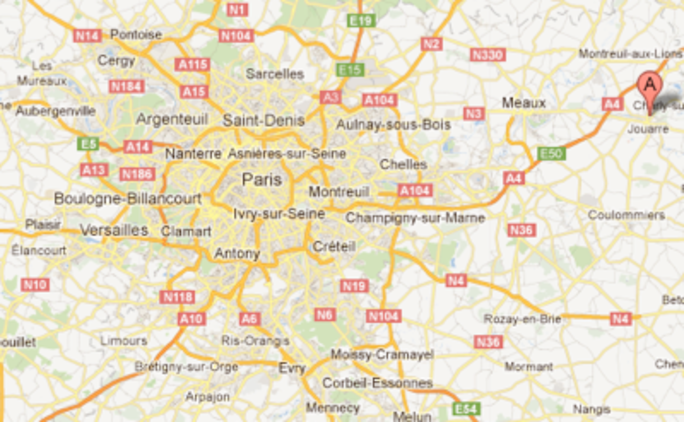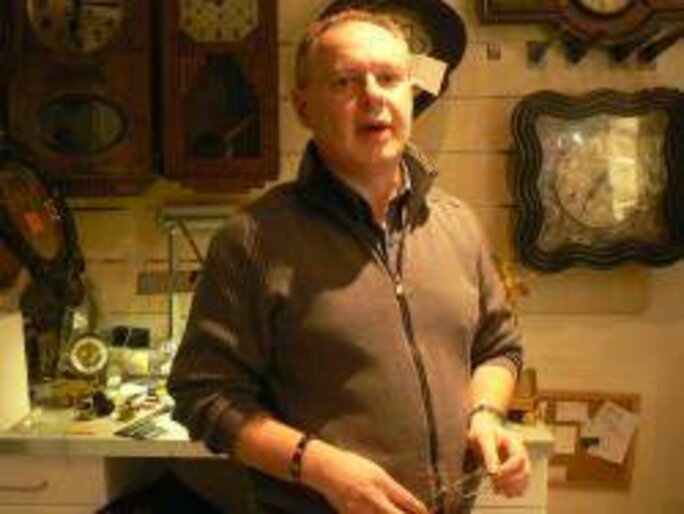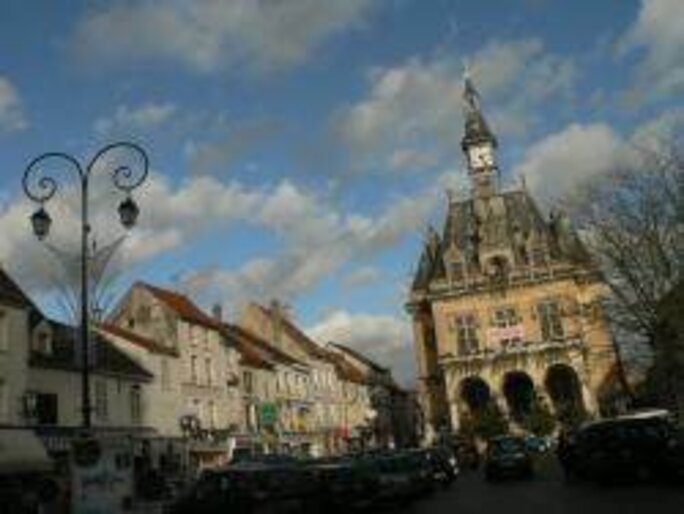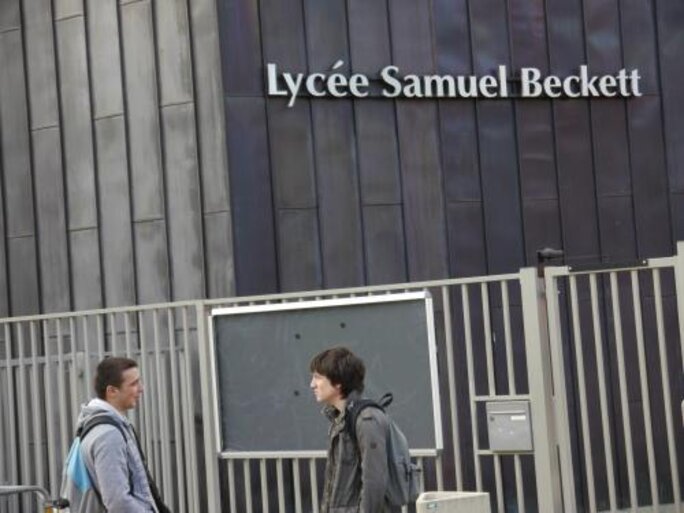As France approaches presidential elections, held over two rounds in April and May, both the mainstream Left and Right are threatened with a significant desertion of their core electorate among the country’s low- and middle-income earners, struggling to survive the devastating effects of the economic crisis and revolted by a series of major scandals among the political elites. Rachida el Azzouzi and Mathieu Magnaudeix report from Crepoil and La Ferté-sous-Jouarre, two dormitory communities just east of Paris, where hope in the future has turned to rage against broken promises.
-----------------------
The village of Crepoil lies at the edge of the Greater Paris Region, in the north of the sprawling Seine-et-Marne département (equivalent to a county) immediately east of the capital. Still a hamlet at the end of the 1980s, it has grown considerably over the past 20 years, mostly due to the arrival of families from Paris' inner suburbs keen to avoid their children growing up in the midst of high-rise housing estates, and young couples seeking a bit of green.
The old houses have been re-juvenated and in the centre of town a local entrepreneur has refurbished a farmhouse and built a slew of new homes which he rents without difficulty. On the road to La Ferté-sous-Jouarre, the closest town, inexpensive ranch-style homes have sprung up.
The new population was drawn by property prices far lower than areas closer to the capital, making the dream of a home of their own with flower beds and a vegetable garden a reality. Never mind that Crepoil lies under the flight path for Charles-de-Gaulle airport, or that getting to Paris is a 75-kilometre drive by car or a 45-minute trip on the worn RER commuter train.

Many are blue-collar workers and service sector salaried employees, whose workplaces are Roissy, Marne-la-Vallée or Paris, with a daily commute of several hours by car or public transport.
Virginie is a social worker who lives in a pretty house in the main street. Her husband is a construction foreman in Paris. He leaves the house at 5 a.m.and returns at 9 p.m., spending three hours in the car - when there are no major traffic jams. "During the week, in fact, we don't see each other very much,” Virginie says.

Owner of a house at the outskirts of the village, Bruno Sourmant is a goods delivery driver in Paris while his wife manages the cold cuts department of a supermarket. Both get up each morning at 3.30a.m. It's a daily grind but they also derive a certain pride from the feeling of having achieved more than others. "We're happy, we have our little life," says Bruno.
Six out of ten of France’s active labour force are industrial workers or service-sector salaried employees. A large number of them now live outside of large cities, often even outside of suburban areas, in what's called the semi-rural or rural areas. They earn the minimum wage, sometimes a bit more. They are neither poor nor well-off. The Left offers them little appeal, while the Right mobilises them now and then. The Far-Right Front National party (FN) is trying hard to make gains among this increasingly disorientated electorate.
This is the France that “gets up (very) early”, to quote from an election campaign slogan used by President Nicolas Sarkozy in whom it thought it had found a saviour. In the last presidential election, in 2007, Cocherel, the electoral district to which Crepoil belongs, 63% voted for the current president. Five years on, "we are very disappointed," says Bruno Sourmant, who voted Sarkozy in 2007. He makes no secret of the fact that this time he will vote for "Marine", referring to FN leader Marine Le Pen. In this part of Seine-et-Marne, the FN scored well in the most recent local elections, the cantonales, held last spring. In Cocherel, it nearly hit 30% in the first ballot of the two-round system, helped by a high abstention rate.
But traditional reasons for voting for the FN are absent; the local region has a small immigrant population, three times less than the average across the Greater Paris Region, the Ile-de-France. Unemployment, compared to the national average, is low. Often both spouses are employed. The numbers of those receiving welfare benefits is very low.
Voting for Far Right no longer a taboo
After the April 2011 local elections, urban planner Laurent Davezies, surprised by the FN's break-through in this part of the Ile-de-France, studied the results and found some revealing indicators. The cantons of La Ferté-sous-Jouarre and of Lizy-sur-Ourcq, in the north of the département, are where the party of Marine Le Pen made most in-roads. The area also attracted 60% of the region’s new residents between 1975 and 2006, although the influx is stagnating. Seven out of ten residents, most of them workers or salaried employees, are homeowners.
"They rushed to the outer suburbs to buy a house, that is what is most characteristic of their life-style," says Davezies. Each morning, they travel three times more than the average French person to reach their workplace (49 kilometres on average). "In short, they put up with all of the disadvantages," notes Davezies. While their per-capita income is 20% higher than the national average (1,500 euros per month), they receive fewer welfare benefits, such as child benefits or pension supports. In short, they are neither wealthy enough to be financially comfortable, nor poor enough to be eligible for welfare top-ups.
For Davezies, these "low-income whites" [1] living in the "non-city" are in deep crisis. They are becoming economically and socially downgraded, in silence. "They have a job, but they still live in an absolute precarious situation from the point of view of their economic integration," he says. "Their jobs are uncertain because industrial jobs are often located in semi-rural areas. The price of fuel for the car is rising. They feel despised by the elites, their environmental impact is huge, they live in a house. They have everything wrong and they know it," he adds.
Crepoil residents interviewed by Mediapart presented a mixed bag of political allegiances, principally with the centre-Right, the FN and the ruling UMP party of President Nicolas Sarkozy. All speak of the same angst. They feel the middle class is "vanishing" and that politicians are interested in either “the welfare-dependent” or the rich, but not in them.
They complain that jobs have become less well paid, that purchasing power is shrinking and that their children are having a harder and harder time of things. Some, like Bruno or Frédéric, admit being tempted by the FN. "We've tried the Right, the Left, so why not Marine Le Pen?" asks one.
The town of La Ferté-sous-Jouarre, a dozen kilometres away, created a buzz in the latest cantonal elections when, in the first round of balloting, the FN candidate, relatively unknown, took the lead in front of the socialist mayor of La Ferté, Nathalie Pierre. The FN also achieved high scores in the neighbouring small towns.
Last year, La Ferté was hit by six armed robberies in nine months. Lionel Decleve

, a jeweller, was attacked twice. "On December 23rd 2010 by some professionals who'd brought out the heavy artillery and on June 18th 2011 by some kids from the housing estates who were learning the business,” he recounts. “Since then, I've barricaded myself a little." Lionel has a grudge against gold dealers who, within the context of the economic crisis and the rise in gold prices, are putting more and more ads in the local papers.
The optician and the perfume shop have also been robbed.
A Franco-Algerian shopkeeper, who asked for her name to be withheld, says her local colleagues now call the police as soon as they see a young person "not from here" pass in front of their windows. She describes the political situation as despairing. She wanted to vote for Dominique Strauss-Kahn [2]. "Many clients speak, without shame, about bougnoules,” she says, referring to the racist slang term for North Africans. “They think that because I'm a shopkeeper, I'm Jewish," she adds shrugging her shoulders. "People are less and less afraid to say that they will vote for Marine Le Pen."
During the Christmas holidays, the city police carried out street patrols to discourage further robberies. In the spring, the town plans to install twenty-five video surveillance cameras, on top of those at the train station.
-------------------------
1: "Petit-blanc" in the original French. In francophone-Africa and France's Pacific Ocean overseas territory Réunion Island, this phrase is used to describe recently arrived, cash-strapped whites.
2: Former IMF chief Dominique Strauss-Kahn was widely tipped to become the Socialist Party presidential candidate.
'The middle classes are almost bankrupt'
Inside the town’s only café, Au Bon Coin, which sits on the main square and doubles as a PMU horse-race betting shop, Roger, 56, wearing a quilted lumberjack shirt, slams his fist on the counter and castigates "gangs". He rails against "those who fraud like [L’Oréal heiress] Madame Bettencourt, who earns how many minimum wages per second while we are killing ourselves?" and "those on welfare, not the occasional ones who lose their jobs, the professional ones, those that hang out on the town hall square and then go to the Restos du coeur [soup kitchen]," not forgetting the "immigrants-unemployed-delinquents".
The café owner, a lively fifty-something woman, rushes in with cases of bottles and shouts out loudly: "Well, I voted [Jean-Marie] Le Pen [1] in the first-round ballot in 2007 and I boycotted the second round. Because I'm fed up". This year she is hesitating "between Marine and abstention". Fred, the waiter, asks the few clients present who’s going to vote. No one raises a hand. "See, they've discouraged us, disgusted us," he announces.
"People around here, they're always running around, their lives are crazy," says Sandrine, the café’s faintly punk waitress. "But for many it's the same story. Their debit card goes into the red around the 13th of the month".

"Around here, it's the blues, total boredom," smiles Walid, a 25-year old Algerian who alternates between temporary jobs and unemployment and spends his time in the café. "We drink coffee, we play [scratch card lottery game] Rapido and at the end of the day we've lost all our money." Nearby, Mehdi, an 18-year old of Tunisian origin, played truant from school to take his driving test sooner. He hates La Ferté. "People will say hello to you and the next day they file a complaint against you,” he complains. “We are not subjected to racism but it shows up in the ballot box".
La Ferté, once a prosperous and mostly bourgeois, is in silent decline as it becomes a dormitory town. During the day, the streets are empty. In front of the Samuel Beckett secondary school, Mathilde, who will soon be 18, dreams of living elsewhere. Both of her parents are bank employees, one in Paris, the other just outside the capital. Her parents have shuttled betwen the 75 kilometres and neighbouring Saâcy-sur-Marne and Paris for 15 years. She doesn't want that kind of life. "Nothing happens, there is nothing to do," she complains. "There is no café where we can go between classes, other than the PMU [café] for the oldies and the MacDonald's. We don't even have a movie theatre!"

Thibault and Pierre, who are re-sitting their last year of high school, share the same view. "We are bored to tears, it's the sticks, prison," they say. They are in a hurry to be free of public transport, to get a driver's license so they can "get the hell out" of the Seine-et-Marne area.
"People are fed up," admits Nathalie Pierre, the mayor of La Ferté. "People work, they work impossible hours but they still can't make it. The crisis is hitting us directly too. Unemployment is on the rise, especially for those over 50 years old. There is pauperisation, more people are asking for help at the social welfare centre and there are more electricity cut-offs".
"There is a confused sense of insecurity. Rudeness, the economic crisis, the euro, people confuse everything," says Lionel, the jeweller, sadly. He votes conservative Right and will again vote for Nicolas Sarkozy, if he stands for a second term, as expected, in April’s presidential elections.
An estate agent who requested that his name be withheld to avoid "reprisals", says he is on the verge of putting the key under the door. Recently the window of his agency was vandalised. "Business is not very good right now,” he comments. “The middle classes are on the verge of bankruptcy. They ask us for the impossible, a house with three-bedrooms and a garden for between 110,000 and 200,000 euros. Ten or twenty years ago their budget was much more."
-------------------------
1: Father of Marine Le Pen and founder of the National Front, Jean-Marie Le Pen stepped down as the party's leader in January 2011 in favour of his daughter.
English version: Patricia Brett
(Editing by Graham Tearse)
This is an abridged version of an article originally published on Mediapart's French-language pages, found by clicking here.


